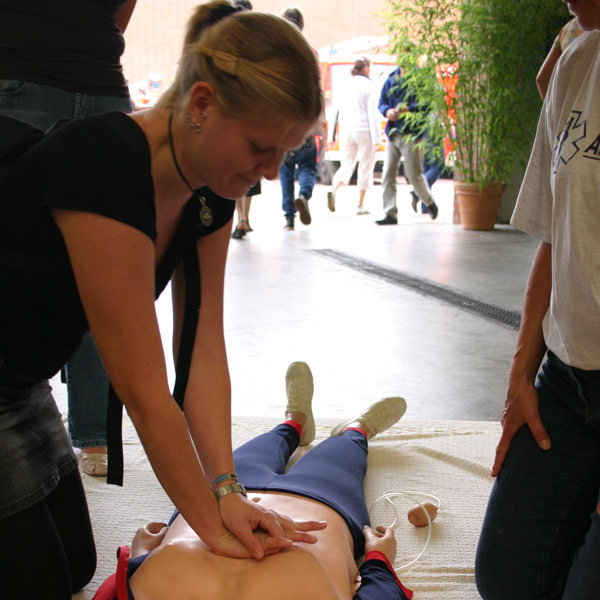
FRIDAY, Nov. 22, 2013 (HealthDay News) — A mechanical device that delivers chest compressions during CPR does not improve short-term survival of cardiac arrest patients, compared to traditional hand compressions, a new study shows.
“Many factors affect the chances of survival after cardiac arrest, including early recognition of arrest, effective CPR and defibrillation, and post-resuscitation care. One important link is the delivery of high-quality chest compressions to achieve restoration of spontaneous circulation,” wrote authors of the study published Nov. 17 in the Journal of the American Medical Association.
“The effectiveness of manual chest compressions depends on the endurance and skills of rescuers, and manual compressions provide only approximately 30 percent of normal cardiac output,” Dr. Sten Rubertsson, of Uppsala University in Sweden and colleagues explained in the study.
Manual CPR involves prolonged “hands-off” time and its quality drops most when the patient is being transported, the authors report. To improve CPR, mechanical chest-compression devices have been developed.
However, the use of such devices in patients who suffer out-of-hospital cardiac arrests had not been tested in large clinical trials, the researchers noted.
This study included nearly 2,600 people who suffered out-of-hospital cardiac arrest in Sweden, Britain and the Netherlands between January 2008 and February 2013. Ambulance crews gave half of the patients CPR with a mechanical chest compression device and the other patients received CPR with hand compressions.
The mechanical device used an integrated suction cup designed to deliver compressions according to CPR guidelines.
The four-hour survival rates was 23.6 percent for patients who received mechanical CPR and 23.7 percent for those who received manual CPR. Among patients who were still alive after six months, 99 percent of those who received mechanical CPR and 94 percent of those who received manual CPR had good neurological outcomes, according to a journal new release.
The type of CPR given didn’t appear to make a difference.
“In patients with out-of-hospital cardiac arrest, mechanical chest compressions in combination with defibrillation during ongoing compressions provided no improved four-hour survival vs. manual CPR according to guidelines. There was a good neurological outcome in the vast majority of survivors in both groups, and neurological outcomes improved over time,” the researchers wrote.
More information
The American Academy of Family Physicians has more about CPR.
Copyright © 2025 HealthDay. All rights reserved.

